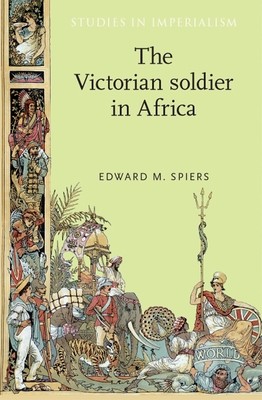
- We will send in 10–14 business days.
- Author: Edward Spiers
- Publisher: Manchester University Press
- ISBN-10: 0719091276
- ISBN-13: 9780719091278
- Format: 15.6 x 23.4 x 1.2 cm, softcover
- Language: English
- SAVE -10% with code: EXTRA
Reviews
Description
The Victorian soldier in Africa re-examines the campaign experience of British soldiers in Africa during the period from 1874 to 1902 - the zenith of the Victorian imperial expansion - and does so from the perspective of the regimental soldier. The book utilises an unprecedented number of letters and diaries, written by regimental officers and other ranks (many of which were published in the metropolitan and provincial press), to allow soldiers to speak for themselves about their experience of colonial warfare. The sources demonstrate the ability of the British army to fight in different climates, over demanding terrain and against a diverse array of enemies. They also uncover soldiers' reactions to the army reforms of the era as well as the introduction of new technologies of war. The book includes commentary on soldiers' views of commanding officers and politicians alongside their assessment of war correspondents, colonial volunteers and African natives in their roles as
auxiliaries, allies and enemies.
EXTRA 10 % discount with code: EXTRA
The promotion ends in 11d.09:24:14
The discount code is valid when purchasing from 10 €. Discounts do not stack.
- Author: Edward Spiers
- Publisher: Manchester University Press
- ISBN-10: 0719091276
- ISBN-13: 9780719091278
- Format: 15.6 x 23.4 x 1.2 cm, softcover
- Language: English English
The Victorian soldier in Africa re-examines the campaign experience of British soldiers in Africa during the period from 1874 to 1902 - the zenith of the Victorian imperial expansion - and does so from the perspective of the regimental soldier. The book utilises an unprecedented number of letters and diaries, written by regimental officers and other ranks (many of which were published in the metropolitan and provincial press), to allow soldiers to speak for themselves about their experience of colonial warfare. The sources demonstrate the ability of the British army to fight in different climates, over demanding terrain and against a diverse array of enemies. They also uncover soldiers' reactions to the army reforms of the era as well as the introduction of new technologies of war. The book includes commentary on soldiers' views of commanding officers and politicians alongside their assessment of war correspondents, colonial volunteers and African natives in their roles as
auxiliaries, allies and enemies.


Reviews